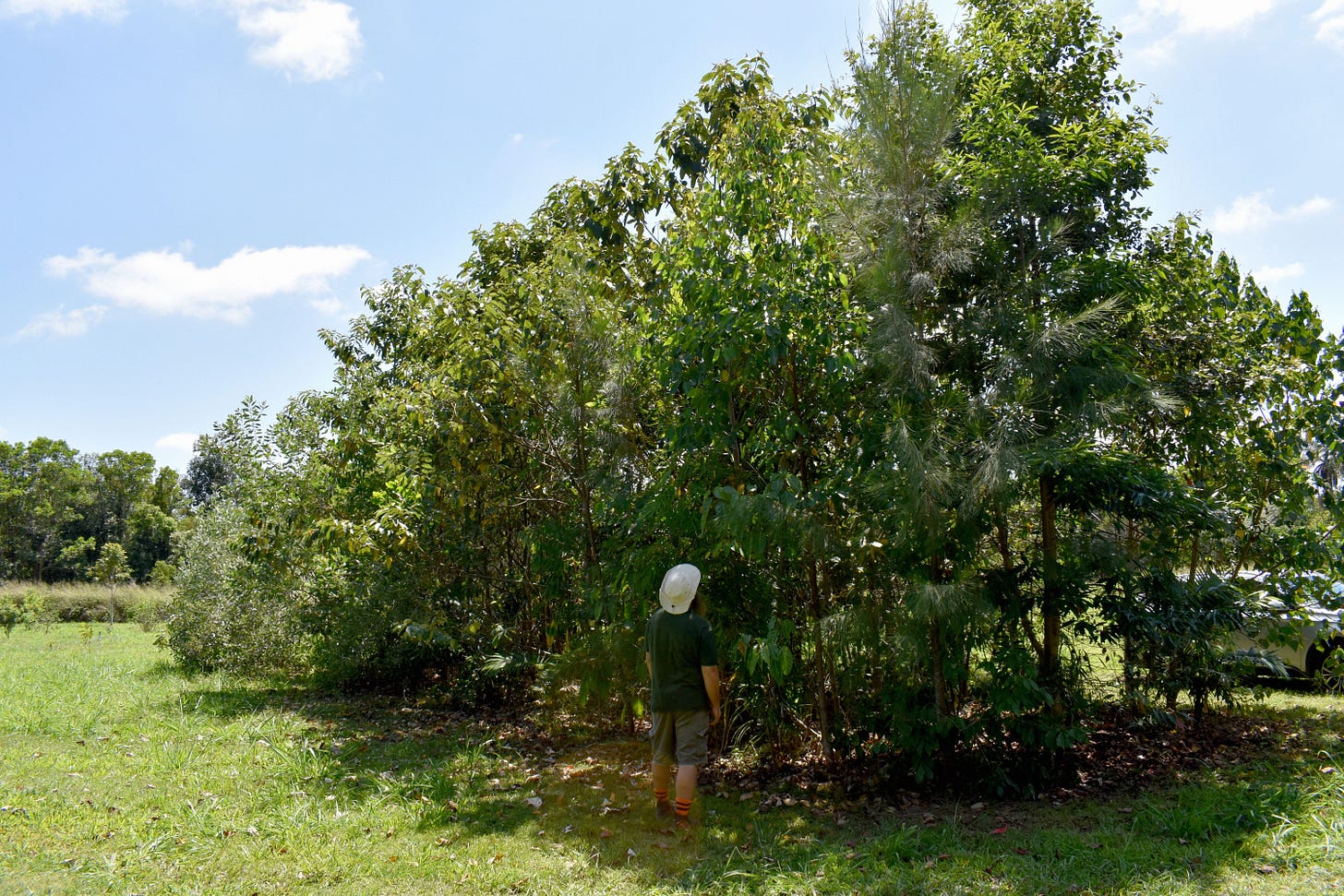Here's what you should do this Earth Day
A dose of positivity for yourself and the planet, with our pals at The Know. Plus, we hear from the world's largest community of Miyawaki forest-makers.
🌏 Thanks so much for reading Ours to Save! As always, the best way to support us is by becoming a paid subscriber. You can also share this newsletter or our platform on social media to spread the word. This will ensure we can keep publishing forward-thinking environmental journalism. 🌏
How to celebrate the Earth today 🌎
Part of protecting our planet is soaking up its beauty. Here are five ways to enjoy and take care of it today, on Earth Day.
While we adore honouring the planet we call home, this day has the tendency to stir up some gloomy headlines - and rightfully so. But we think that the best way to fuel the fight for our planet is to choose optimism, even when the going gets rough.
So we teamed up with our friends at The Know to encourage you to truly celebrate the Earth today - both in big and small ways. By giving yourself and our planet a dose of positivity, you might be encouraged to carry climate action that extra bit further.

Here are some ways to celebrate our shared home today:
Keep your spring clean green. Take the change in seasons as a chance to declutter – sustainably. Try out some refillable cleaning products, or just use plain old vinegar. Get a houseplant to keep the air in your home purified. And rather than binning clothes you don’t want anymore, think about what you can repair, repurpose or give away.
Go swimming. Immerse yourself in nature and head to a lake, beach or outdoor pool for a swim. Whether you’re staring at the blue sky while doing backstroke or wincing at how cold the water is, you’ll find yourself feeling calm and revitalised.
Cook a planet-friendly meal. Challenge yourself to eating a dish that’s both ethical and delicious. That might look like skipping the meat, fish and dairy; buying from a small producer local to you; or looking up which veg are in season before you buy.
Grow something. You don’t need to plant a tree or a vegetable garden. Think smaller if you need to: sow some seeds around any trees on your street, grow cress on your windowsill using cotton wool, or look into planting seeds and stones leftover from food prep.
Support climate action. Get out there and show your appreciation for those preserving the planet day in, day out. You could attend an Earth Day protest or event; say thank you or donate to activists you follow; or spread the word about an environmental campaign close to your heart.
Above all, remember that half of the climate action battle is fuelling the fight sustainably.
Florence Wildblood is the editor of Ours to Save. You can follow her on Twitter.
Follow The Know on Instagram.
Embracing the Miyawaki method 🌿
In conversation with the largest worldwide community of Miyawaki forest-makers about what distinguishes this technique from the rest.
How do you go about planting 115 pocket forests across 15 countries – in cities, schools, and green deserts? We sat down with the biodiversity champions SUGi to find out, and to chat about how their work regenerates ecosystems and helps people reconnect with nature.
Tell us about the magic behind the Miyawaki planting method?
The Miyawaki method of afforestation allows for the rapid creation of pockets of forest - both in urban and rural settings. The key is densely planting a diversity of native species - trying to mimic how nature forms.
The method can be applied to ecosystems around the world (our SUGi Pocket Forests are evidence of that) and it produces faster growing, more resilient, more biodiverse and overall, more successful forests.
Lastly, they are easy to maintain too; SUGi Pocket Forests are self-sustaining after 3 years, sometimes less!
Is biodiversity the key to a healthy ecosystem?
Yes - biological diversity brings balance, health and long term sustainability to ecosystems. You very rarely, if ever, see monocultures within nature, there is always diversity (unseen as well and seen) underlying nature’s equilibrium.
Biodiversity is really an innumerable set of cogs all working together to keep the greater ecosystem functioning and in balance.
How can planting pocket forests help protect endangered wildlife?
Our Queensland projects - overseen by SUGi Forest Maker, Brett Krause - have created critical and strategic corridors of habitat for the endangered Southern Cassowary. The last century has seen the native forests that are home to these birds cleared to make way for agricultural land.
We cannot totally reverse this turn of events - but in creating forest corridors that enable the Cassowary to make its way safely through the landscape, we are securing the recovery and future of this species. Indeed, this applies to other wildlife and contexts around the world. As human settlements continue to encroach onto wilderness, forest corridors will become more and more important as we look forward.
How do you tailor your rewilding projects to support the needs of local communities?
SUGi Pocket Forests can be integrated into any context and are therefore highly adaptable to the needs of any community. Our work in Cameroon with our Forest Maker Limbi Blessing Tata, has been nothing short of miraculous. At Bonduma, water shortages were a chronic issue for local people, with waterways drying up due to decades of poor land management.
By planting a native forest around a water catchment, in less than 2 years water tables have improved and new water storage tanks have been constructed. It is community leadership plus the native forest and the Miyawaki method working their magic!
You’ve been working on a school forest in East London. Do children play an important part in your rewilding and conservation efforts?
Absolutely. We want to inspire the next generation to feel that they can have a say in their environmental futures and make an impact with some really simple actions. It isn’t necessarily about aiming for children to become environmentalists - it is about simple awareness of the connection between people and the natural world. Children are natural stewards of their surroundings; we make that fun and meaningful.
What’s the next big step for SUGi?
We have plans for a major push towards amplifying the impact of SUGi Pocket Forests in 100 schools around the world and across tens of thousands of acres to create ‘Super Forests’ for and by our community, what we call ‘The Rewilding Generation’. Our big challenge in reaching this goal is always funding.
SUGi has just launched its second fellowship - a programme of training that aims to mobilise a new generation of Forest Makers.
Email plant@sugiproject.com for more information (deadline: April 29 2022).
You can also support its work and keep up to date with the growth of each forest with a monthly subscription via its website.






